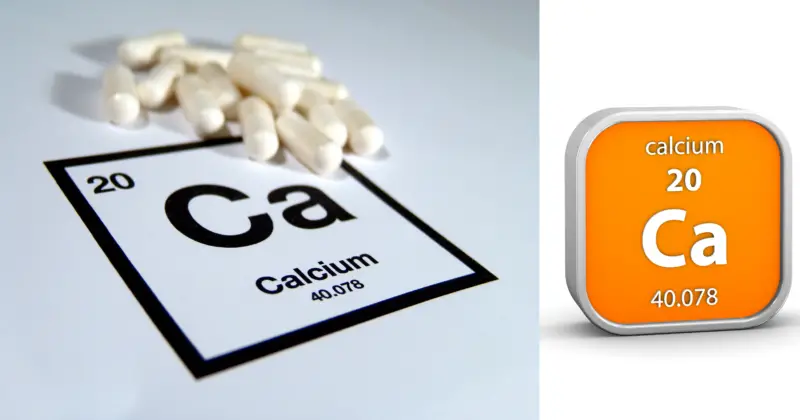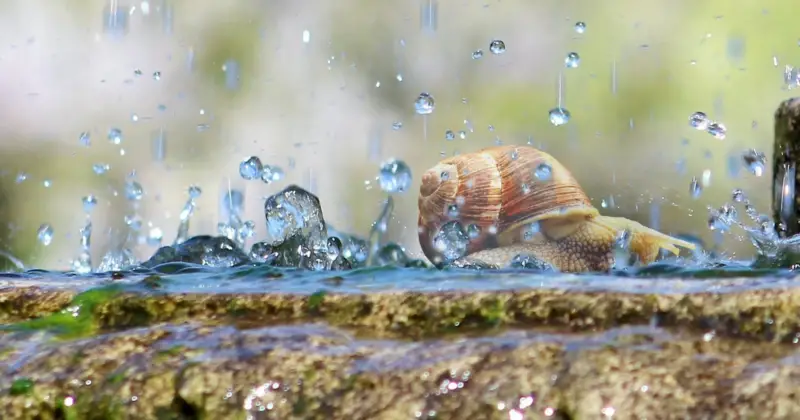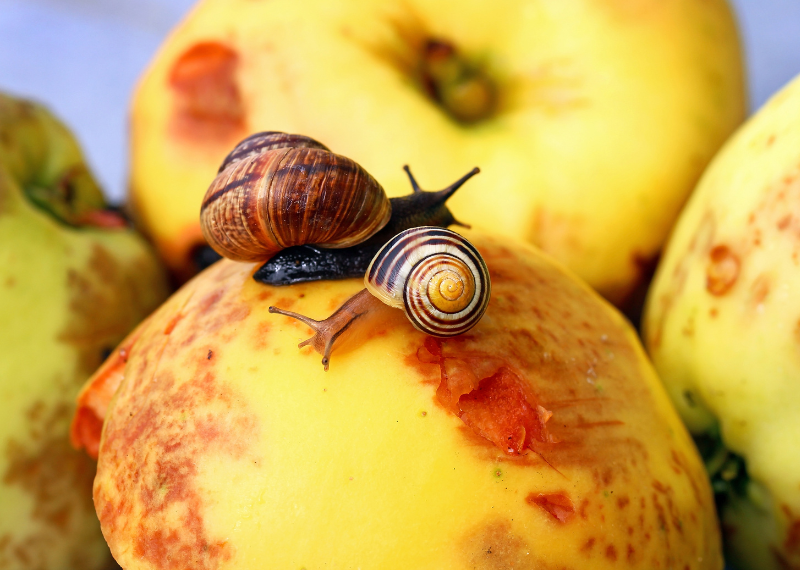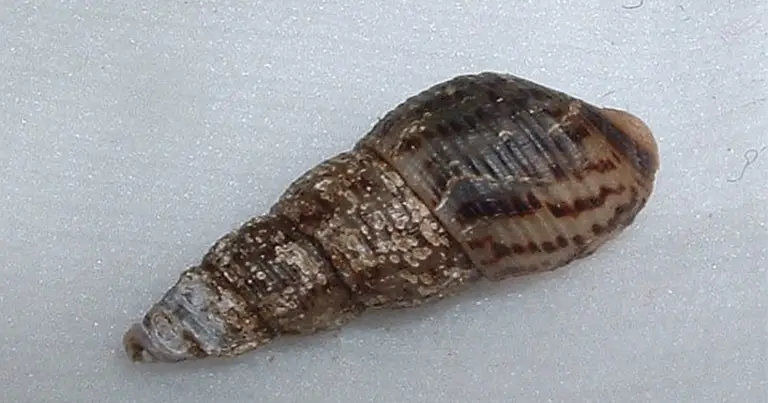Calcium for Snails: Essential Guide to Shell Health

Calcium is a vital nutrient for snails, crucial in their growth and development. As snails grow, their shells grow, too, requiring calcium to strengthen and maintain their shells. Snails may develop weak and brittle shells without sufficient calcium, making them more susceptible to injury and disease.

Snail shells mainly comprise keratin, the same element in human nails and hair. Although keratin primarily comprises protein, calcium is essential for maintaining the shell’s hardness. To keep your snails healthy, an adequate calcium supply is crucial.
Several effective ways to provide your snails with calcium include introducing calcium-rich food into their diet and using supplements. Some excellent sources of calcium include cuttlebones, kale, soybeans, leaf lettuce, and zucchini. By ensuring your snails have enough calcium, you can support their shell health and overall well-being.
Contents
Table of Contents
Essentiality of Calcium for Snails

Calcium is an essential mineral for the health and well-being of snails. It plays a crucial role in building their shells, maintaining their skeletal structure, and even carrying out basic metabolic processes. As a snail owner, it’s your responsibility to provide sufficient calcium to your snail friends, so let’s dive deeper into its importance and how to ensure they receive enough of it.
Firstly, the shells of snails are primarily made up of keratin, a protein-like substance also found in human nails and hair. However, calcium is vital for maintaining the shell’s hardness and integrity. A lack of calcium in a snail’s diet can lead to weak, brittle shells, rendering them vulnerable to injuries or infections.
Snail shells also serve as a support system for their delicate internal organs. The calcium in their shells gives them the strength to withstand physical pressure and protect their organs from damage. Young snails, in particular, require higher amounts of calcium in their diet as they are experiencing rapid shell growth.
Calcium also profoundly impacts a snail’s overall health and bodily functions. It ensures proper muscle function and nerve transmission, among other metabolic processes. Thus, your snails might suffer from health issues and a compromised immune system without adequate calcium supply.
To summarize, providing sufficient calcium to your snails is essential to maintaining their health and well-being. By understanding the importance of calcium in their growth and development, you are better equipped to meet their nutritional needs and ensure they live a long and healthy life.
Calcium and Snail Shell Health

Calcium is an essential mineral for snails, as it is crucial in their shell development and maintenance. Snails utilize calcium to build their shells, maintain their skeletal structure, and carry out basic metabolic processes. Providing sufficient calcium to pet snails is vital for their health and well-being.
Shells comprise calcium carbonate (CaCO3), making up 95-98% of their dry weight. Snails need adequate calcium intake to ensure proper shell formation and strength. Snails lacking sufficient calcium can develop thin, fragile shells with holes and cracks, making them susceptible to damage and disease.
The hardness of snail shells mainly comes from the combination of calcium and keratin, the same element found in human nails and hair. Calcium helps maintain the shell’s structure and safeguard snails against environmental threats.
To ensure the health of your snails and their shells, you can take these steps:
- Provide a calcium-rich diet, including leafy greens and vegetables like spinach, kale, and broccoli.
- Add a calcium supplement to their diet, like cuttlebone or calcium-infused snail food.
- Maintain stable water parameters if you have aquatic snails, including adequate calcium levels.
Following these guidelines, you will support your snails in maintaining healthy shells and ultimately contribute to their well-being.
Sources of Calcium for Snails

Calcium is a vital nutrient for snails, strengthening and maintaining their shells while growing. There are various sources of calcium that you can provide to ensure the health of your snails. Below are some of the most popular and effective options to consider.
Cuttlebone is an excellent source of calcium, commonly used by snail owners. It comes from cuttlefish and can be purchased at most pet stores. You can place a piece directly in the snail’s enclosure or powder it and mix it with your snail’s food.
Eggshells are another great source of calcium. To use them, crush clean and dry eggshells into a powder. You can then mix it into your snail’s regular diet or offer it to them separately.
Calcium carbonate is the main component in snail shells, making up about 95-98% of their composition. You can find calcium carbonate supplements specifically made for snails, with varying types available on the market.
Oyster shells provide calcium, which can be offered crushed or ground. They can be purchased at most pet stores or found in products like calcium blocks. Simply place them in the enclosure or mix them with your snail’s food.
Calcium-rich food items are essential for snails. Some options include:
- Soybean: This healthy legume is a fantastic vegetarian option to provide calcium to your snails.
- Leafy greens: Greens like spinach, kale, and leaf lettuce are packed with nutrients, including calcium.
- Broccoli and peas: These vegetables can be fed to snails, ensuring they get nutrients and calcium.
- Zucchini: Not only does it provide calcium, but it’s also light in texture, making it easy for snails to consume.
As a snail owner, it is crucial to provide a variety of calcium sources, such as cuttlebones, and eggshells, and calcium-rich foods like soybean, green beans, spinach, kale, and peas. This ensures your snails receive adequate nutrients for their shell growth and overall health. Remember to monitor their health and adjust their diet as needed. Meeting your snails’ calcium needs will help maintain a healthy and vibrant habitat.
How Snails Absorb Calcium

Snails need calcium to build and maintain their shells, primarily composed of calcium carbonate. As a snail owner, it is crucial to understand how snails absorb calcium from their environment.
Firstly, snails obtain calcium through their diet. Foods high in calcium, such as cuttlebone, spinach, and kale, can be provided to your snails to ensure adequate amounts of this essential mineral. In addition to calcium-rich foods, snails also obtain calcium by consuming small rocks and even eggshells. It is advisable to provide these sources of calcium to your snails regularly.
Another way snails absorb calcium is via water. Snails are known to absorb minerals dissolved in water through their skin. Thus, ensuring your snails live in water with sufficient calcium is essential for their well-being. You can maintain appropriate calcium levels in your snail’s water by adding calcium supplements or dissolving crushed coral.
Lastly, snails can acquire calcium through the substrate they live on. Calcium is often present in the soil they crawl on for land snails. In this case, snails absorb calcium directly through the sole of their foot. Similarly, aquatic snails may absorb calcium through the substrate in their tank if it contains sufficient calcium. Incorporating calcium-rich substrates or adding crushed coral to the tank will provide a continuous supply of calcium for your aquatic snails.
By ensuring snails have access to calcium through their food, water, and substrate, you support their health and promote solid, well-developed shell formation.
Impact of Water on Calcium Absorption

Water plays a crucial role in the well-being of your snails, and its characteristics can greatly influence calcium absorption. To ensure the healthy growth of your snails, it’s important to understand how different water parameters affect their calcium uptake.
Water Hardness and Alkalinity: Considering that calcium is essential for snail shell development, water hardness which measures calcium and magnesium levels, and alkalinity, which measures carbonate and bicarbonate levels, are essential parameters. Higher water hardness and alkalinity promote better calcium availability, contributing to stronger and healthier shells for your snails. You can measure these parameters in ppm (parts per million) using test kits or specialized equipment.
pH Levels: A stable pH level in your aquarium is essential for maintaining calcium accessibility. An ideal pH range for snail habitat is around 7.0 to 8.0. A lower pH can result in acidic water, endangering your snails’ health by eroding their shells, while a higher pH may affect their metabolic processes.
Temperature: Water temperature can impact snail metabolism and calcium absorption. A suitable temperature range for most freshwater snails is between 68°F to 82°F (20°C to 28°C). Maintaining this temperature range ensures that your snails are comfortable and can optimally absorb calcium for shell development.
Water Conditions and Mineralization: Besides the parameters mentioned above, overall water quality and cleanliness determine the effectiveness of calcium absorption. Regularly monitoring your water parameters and performing water changes as needed helps keep your snail habitat in optimal condition. Additionally, providing well-mineralized water with balanced levels of essential nutrients and trace elements supports healthy growth and metabolism in your snails.
By carefully monitoring the hardness, pH, alkalinity, temperature, and other water parameters in your aquarium, you can ensure optimum calcium absorption for your snails. This, in turn, guarantees their overall health and well-being – resulting in strong, well-formed shells and thriving snails within your aquarium.
DIY Calcium for Snails and Shrimp – Save on Nutritional Supplements
The Role of Supplementation in Snail Care
Calcium plays a crucial role in maintaining the health and well-being of your snails. It is an essential mineral that strengthens their shells, protecting their soft tissues and internal organs. Ensuring that your snail receives sufficient calcium is integral to snail care.
To achieve optimal snail health, providing them with a well-balanced diet is vital to meet their calcium needs. However, their natural diet may not always supply the required calcium. This is where calcium supplementation becomes crucial in snail care.
Providing calcium supplements for your snails is an effective way to ensure that they receive adequate amounts of calcium. Various calcium supplements, such as calcium-rich powders, cuttlebones, and calcium-enriched foods, are available in the market. These supplements can easily be incorporated into your snail’s diet to boost calcium intake.
To maintain a healthy enclosure for your snail, closely monitoring the mineral levels in their habitat is important. Ensuring their environment has the right balance of nutrients, including calcium, will help them thrive. Furthermore, providing calcium supplements in their enclosure also allows your snails to absorb the essential mineral through their bodies as needed.
Monitoring the calcium levels in your snail’s habitat, consistent supplementation and a balanced diet, helps promote their overall health. By taking these simple measures, you can ensure that your snails live a long, healthy, and active life.
Impact of Diet on Calcium Intake

Your snail’s diet plays a significant role in determining their calcium intake. Calcium is a crucial nutrient for snails as it helps grow and develop their shells, primarily composed of calcium carbonate. To ensure your snails maintain healthy shells, providing them with a calcium-rich diet is essential.
Calcium intake can be achieved naturally through the types of food you feed your snails. Some of the best calcium-rich snail foods include cuttlefish bones, eggshells, and limestone. Snails can also benefit from calcium-rich vegetables such as kale, broccoli, and spinach. These foods provide calcium and other essential nutrients for proper growth and overall health.
In addition to calcium-rich foods, you can also supplement your snail’s diet with dedicated calcium sources. Commercial calcium supplements are available for snails and can be found in pet stores. It’s important to follow instructions regarding the dosage and frequency of these supplements to prevent any health issues due to excessive calcium consumption.
While providing a variety of calcium-rich foods for your snails is essential, it’s also crucial to balance their diet with other nutrients. It’s necessary to understand their needs and select the appropriate foods accordingly. Incorporating diverse food items in their diet will help ensure your snails receive all the required nutrients and maintain a healthy life.
Remember, a well-balanced, calcium-rich diet is the foundation for happy and healthy snails. By paying attention to their dietary needs and supplementing with additional calcium sources, you can ensure your snails thrive and grow strong shells.
How Calcium Affects Snail Development

Calcium is crucial in a snails’ development, from their shells to their overall health. Understanding how calcium affects their growth as a snail owner helps you provide the best care for these little creatures.
Calcium is essential for building snail shells and maintaining their skeletal structure. It is particularly important for the structure of mystery snails, known for their thick, durable shells. Calcium content impacts the snail’s ability to grow and the strength of their shells, protecting their soft bodies and internal organs.
Like other invertebrates, snails lack bones but rely on their exoskeletons to support them. Sufficient calcium intake is vital to develop and maintain these protective external structures. In addition, calcium plays a key role in basic metabolic processes, helping snails carry out their daily functions.
A lack of calcium in their diet can lead to weaker shells and increased susceptibility to external stressors, potentially affecting the overall health of your snails. To avoid these issues, providing adequate calcium sources for your snails, such as calcium-rich foods, cuttlebone, or even calcium supplements, is crucial.
Keeping your snails supplied with calcium benefits the entire development process. It creates an environment that fosters healthy growth, supports the strength of their exoskeletons and internal organs, and promotes their overall well-being. So remember that providing sufficient calcium for your snails is essential to caring for these fascinating creatures.
Testing for Calcium Levels

To ensure the health and growth of your aquarium snails, it’s crucial to test for calcium levels in your tank. Testing the calcium levels will help you determine if the present levels are adequate for your snails or if any adjustments need to be made. In this section, you’ll learn how to confidently and accurately test calcium levels in your aquarium.
First, you’ll need a calcium test kit designed for aquarium use. Various test kits are available, but they generally measure the amount of calcium in parts per million (ppm) or General Hardness (GH) units. These kits come with detailed instructions and all the necessary components to test the levels accurately.
Begin by filling a test tube with a water sample from your tank. Make sure to follow the instructions provided with your test kit to ensure accurate results. Some test kits may require the use of reagents to react with the calcium present in the water, while others might involve the use of test strips. Complete the testing process according to the guidelines provided by the manufacturer.
Once the test is complete, compare the results to the recommended calcium levels for your aquarium snails. A healthy range of calcium for most freshwater snails is between 70-90 mg/L or designated by appropriate GH units. Adjustments may be necessary if your results indicate calcium levels fall outside this range.
You can raise calcium levels in your tank by adding calcium blocks, dissolvable calcium supplements, or selecting a calcium-rich substrate. Remember that while these methods can increase calcium, you should also consider factors affecting your tank’s overall constants, such as size and total gallons, to maintain a healthy environment. Regularly testing for calcium levels, ideally every two weeks, can help you monitor and maintain optimal calcium levels to support your snails’ well-being.
Remember, maintaining the right calcium levels in your aquarium is essential to keeping your snails healthy. You can confidently support your snails’ growth and well-being by accurately testing and adjusting calcium levels.
Factors Affecting the Calcium Needs of Snails

As a snail keeper, it is essential to understand the factors that influence your snails’ calcium requirements. Various aspects like age, diet, stress, water quality, and temperature can all impact their calcium needs.
Age: A snail’s calcium requirements change as it grows. Younger snails often demand calcium more since they need plenty for their rapidly growing shells and bodies. As snails mature, their calcium needs may decrease, but it is still vital to maintain proper calcium levels for their overall health.
Diet: The type of food offered can play a significant role in determining your snails’ calcium intake. Snails derive most calcium from food, but not all foods have equal calcium content. High-calcium foods, such as cuttlebone and calcium-rich vegetables, will result in adequate calcium levels for your snails. Processed or low-calcium foods like bread or lettuce might not provide enough calcium, so you’ll need to supplement your pet
s diet with additional sources of calcium.
Stress: Snails under stress, such as new environments or abrupt changes in their habitat, might experience a higher demand for calcium to support their immune and nervous systems. A stress-free environment will help maintain your snails’ health and stable calcium levels.
Water Quality: The calcium concentration in the water your snails live in also impacts their calcium needs. Hard water with higher calcium content can sometimes be enough to meet their requirements, whereas soft water may necessitate additional supplementation. Test your water’s calcium levels regularly to ensure your snails receive adequate calcium from their environment.
Temperature: The temperature of your snails’ habitat can also affect their calcium requirements. Snails may need more calcium in higher temperatures, as their metabolic rates might increase, leading to higher calcium utilization. Make sure to maintain an appropriate and consistent temperature to help ensure that your snails can effectively manage their calcium needs.
By keeping these factors in mind, you’ll be able to create a supportive environment for your snails, optimizing their health and ensuring they have the calcium they need.
Addressing Calcium Deficiencies

If you notice that your snail’s shell exhibits signs of calcium deficiency, such as holes, cracks, or weak spots, restoring their shell health is essential. Calcium is a crucial mineral for snails, requiring it to build and maintain their shells and carry out basic metabolic processes.
The first step to address your snails’ calcium deficiency is to ensure their diet provides enough calcium. Offer high-calcium foods like cuttlebone, crushed eggshells, calcium-rich vegetables (e.g., kale, spinach), and even specially formulated snail food. Remember that variety is essential, so mix different calcium sources to provide a well-rounded diet.
Another effective way to supplement your snail’s calcium intake is by adding calcium carbonate directly to their habitat. You can use calcium-rich substrates, like crushed coral or limestone, or add calcium blocks or tablets to the water. These methods allow your snail to absorb calcium through the water and ingest the calcium-rich items.
Keep a close eye on the water parameters, as proper pH and alkalinity levels are crucial for calcium absorption in snails. A too-acidic environment can hinder calcium uptake, making it difficult for the snail to build a strong shell.
Maintaining proper calcium levels in your snail’s environment will significantly improve their shell health and overall well-being. Remember that consistency is vital, and providing sufficient calcium should be a regular snail care routine.
Consequences of Excessive Calcium

When providing calcium to your snails, it’s essential to maintain a balance. Although calcium is vital for their shell strength and overall health, an excessive amount of calcium can adversely affect both snails and their environment.
Introducing too much calcium can lead to unhealthy water conditions in your aquarium. High concentrations of calcium can cause a significant increase in general hardness (GH) and carbonate hardness (KH) levels. These altered water conditions can harm other species living in the tank, especially those that prefer softer water.
An overdose of calcium can also affect snail health. While a strong shell is necessary to protect it from predators and injury, an overly thick shell can impede its mobility. Additionally, excessive calcium can interfere with normal muscle and nerve function and snail blood clotting mechanisms. Since snails already obtain calcium from their surroundings and food, it is crucial to supplement calcium in moderation to maintain optimal health.
Furthermore, high calcium levels in the snails’ environment can also affect their human caretakers. As a result of calcium build-up and the potential for imbalance, frequent water testing and maintenance may be required to ensure a healthy environment for the snails and other inhabitants of the aquarium system.
To make sure your snails receive the right amount of calcium for their needs, it’s important to:
- Regularly monitor the water conditions in your aquarium
- Provide calcium-rich food sources
- Utilize small doses of cuttlebone or other calcium supplements
- Consult the needs of the specific snail species and evaluate the impact on cohabiting species
Adhering to these guidelines can help ensure that your snails receive the appropriate amount of calcium to maintain their health and well-being.
Frequently Asked Questions
What are the best calcium sources for snails?
Some popular calcium sources for snails include cuttlebones, eggshells, calcium blocks, and calcium-rich foods. Providing various sources can help ensure your snails receive adequate calcium for their shell health and growth.
How can I ensure my snails get sufficient calcium?
To ensure your snails get enough calcium, offer calcium-rich foods like green vegetables and algae wafers. In addition, provide supplemental sources such as cuttlebones and eggshells in their enclosure. Monitoring your snail’s shell health and maintaining proper hydration can also help with calcium absorption.
Is it safe to use reptile calcium for snails?
Reptile calcium powder is generally safe to use for snails. However, it’s important to ensure the product doesn’t contain harmful additives like phosphorus, vitamin D3, or artificial colors. Select a pure calcium carbonate powder to ensure a safe snail option.
What are the signs of calcium deficiency in snails?
Calcium deficiency in snails can manifest in various ways, such as weak shells, sluggish behavior, and difficulty in repairing damage to their shells. If you notice any of these symptoms, consider increasing the calcium sources in your snail’s environment and adjusting their diet to include more calcium-rich options.
Can eggshells provide adequate calcium for snails?
Eggshells can be a valuable calcium source for snails. However, they should not be relied upon as the sole source of calcium. Combining eggshells with supplements like cuttlebone and calcium-rich food will provide a more balanced and comprehensive calcium intake.
How does liquid calcium benefit freshwater snails?
Liquid calcium supplements, such as calcium chloride, offer a quick and efficient way to increase the calcium levels in your aquarium. This can be especially beneficial for freshwater snails, as it helps maintain a stable environment and promotes healthier shell growth. Be sure to monitor the calcium levels in your aquarium and add liquid calcium as needed for optimal benefits.

![What Do Zebra Snails Eat? [Full Guide]](https://allourcreatures.com/wp-content/uploads/2021/10/bigstock-Spotted-Nerite-Snail-neritina-402430379.jpg)




